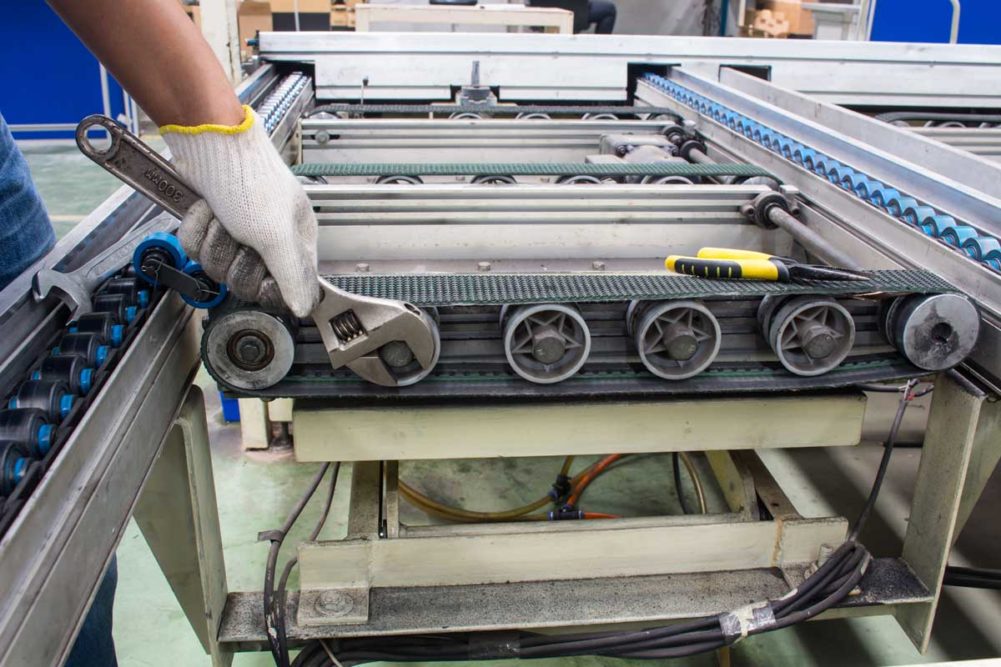Since the coronavirus (COVID-19) hit, all parts of baking and snack operations found their schedules and procedures upended.
Not only has production been affected for better or for worse, but sanitation and maintenance departments also have had to discover innovative ways to keep their plants operating and minimize costly downtime.
“The pandemic has changed how business is done for nearly everybody in the industry,” noted Bret Zaher, manager operations for Americas, AIB International. “Procedures have changed regarding the number of staff on-site at any given time, and the janitorial duties regarding cleaning frequency of cleaning. Sites have had to go to split shifts to separate personnel from each other to prevent overlapping and possible cross-contact.”
Perhaps the biggest challenges have come at those bakeries that have been inundated from requests by retailers needing to keep their shelves well stocked, even months after the initial surge in consumer purchases during the first stages of the pandemic.
Extending production runs has squeezed the time available for departments responsible for keeping bakeries up and running.
“To make matters worse, this reduction in available time has sanitation and maintenance fighting over the same asset,” observed Rowdy Brixey, president, Brixey Engineering Strategies & Training. “Many plants have been forced to shave procedures down to the essentials and critical repairs. Getting the tasks in the correct order can save lots of frustration and lost efficiency. Sanitation often arrives first to pre-clean, followed by maintenance, and then finally sanitation to deep clean and sanitize.”
[Related reading: Becoming armed and ready for COVID-19]
In addition to increased run times, Mr. Zaher pointed out many plants have also reduced production on multiple varieties of products to keep changeovers at a minimum.
At the same time, sanitation procedures have been expanded and become more rigorous to ensure food safety and worker health and wellbeing.
“Janitorial cleaning has increased during shifts, with some sites hiring additional janitorial staff to ensure that hand wash sinks are properly stocked and common contact points such as tables, doors, vending machines, time clocks and bathrooms are cleaned and sanitized multiple times during each shift and especially after employee breaks,” he said.
“Be sure maintenance personnel are taking full advantage of servicing the line while it is still down to get a jump start on the repairs."
Bret Zaher, AIB International
Mr. Zaher added that many bakeries have had to adjust workers’ schedules to help eliminate the number of people in a plant on any given day. Some facilities have operated with smaller teams or increased work hours during the day so that the same employees are on site three to four days a week instead of five to six days in the past.
Additionally, he said, others have scheduled sanitation and maintenance crews to come in so that they are isolated from production — often showing up after all production and shipping/receiving personnel have gone home for the day.
“Several sites have even started having production do the changeover cleaning to keep the same groups of personnel together as much as possible, instead of having the sanitation crew come in and clean,” Mr. Zaher noted. “This change limits the number of personnel on site on any given day.”
Now that the peak summer bun season has ended, bakeries have a little time to focus on proper maintenance and sanitation before the holiday rush.
Mr. Brixey suggested performing mini-asset refurbishment projects during the off-season. Place belts, bearings, power transmission components and other items that might have less than a two-life cycle.
“This drives up your maintenance, repair and overhaul expenses, but you will more than offset the cost in labor and reduced breakdowns,” he said.
Mr. Zaher recommended preplanning for the traditional surge for baked goods at the end of the year.
“Be sure maintenance personnel are taking full advantage of servicing the line while it is still down to get a jump start on the repairs,” he said. “Afterward, ensure that sanitation gets a good deep cleaning on these lines prior to start-up. Additionally, take advantage of any changeover times to get as much cleaning and preventative maintenance done as possible.”
During slower production periods, he noted that some bakeries with multiple mixers and bulk ingredient handling systems can shut half of these bins and tanks for cleaning and servicing while the remaining systems keep production running smoothly.
He recommended providing a little TLC to those systems that sometimes may get ignored when production is operating at full throttle.
“Several sites have conveyors, labelers and other portable equipment that can be quickly switched out with ones that have been serviced and cleaned to help during these extended runs,” Mr. Zaher said. “Other sites have installed ‘switch track’ transfer conveyors for the proofing and cooling systems so product can be run on an idle line and free up time for preventative maintenance and sanitation.”
[Related reading: FDA, OSHA publish pandemic checklist]
In larger facilities, he added, transferring production to an idle line also expands cleaning and maintenance schedules and can buy the plant some time to clean and service the larger systems to reduce downtime.
However, such a luxury is not always possible.
“If your site is not able to switch equipment out or temporarily transfer production to another line, then scheduling forced downtime is necessary,” Mr. Zaher said. “In such cases, the site will have to greatly increase the number of maintenance and sanitation personnel to get the line properly cleaned and serviced in a shorter period of time. “
In multi-plant operations, companies have even greater flexibility by transferring a day or two of production to another plant to allow for deep cleaning and more extensive maintenance to reduce unscheduled downtime going forward.
“This can increase transportation costs [for delivering products], but it may actually save money in the long term as a result of proper preventative maintenance and cleaning,” Mr. Zaher said.






